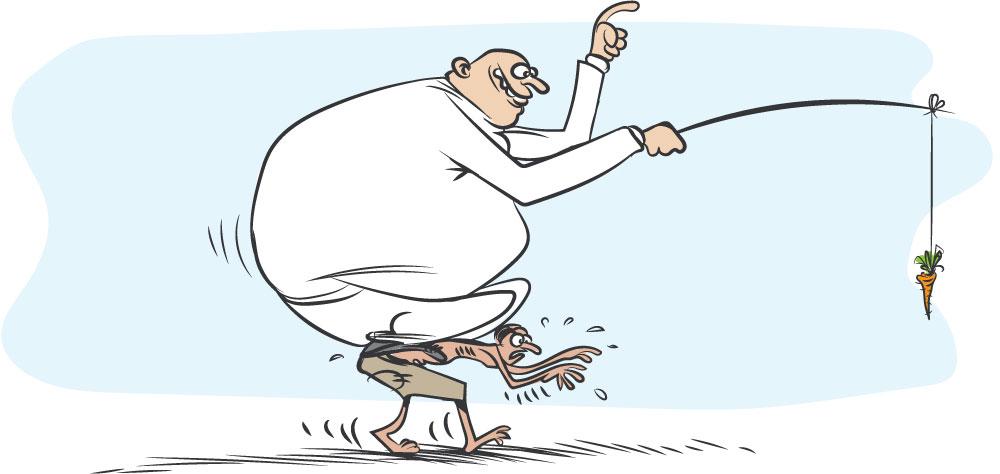09 Jul 2024 - {{hitsCtrl.values.hits}}

Whatever the ruling of the Supreme Court over the petition filed by the businessman from Moratuwa, C.D.Lenawa seeking an opinion of the court on the Presidential term could have been, the next Presidential election would be a make-or-break decision for the people of this country, especially given the on-going economic crisis.
It is a well-known fact that the people of this country have always made decisions at elections without being adequately informed and thereby without knowing what is instore for them subsequent to those elections. In most cases, they let themselves to be carried away by the promises of politicians and repeatedly for the past 76 years faced the obvious consequences. Ultimately, the country was declared bankrupt in 2022 and the people had to undergo a hellish situation while the President of the time had to flee the country in the face of the public wrath.
Nevertheless, all those who ruled the country in the past absolved themselves of the responsibility for the economic disaster. When the Supreme Court ruled with strong facts that the leaders of the Sri Lanka Podujana Peramuna (SLPP) and several officials appointed by them were the immediate culprits, the leader of that party issued a statement denying the ruling with statistics. Interestingly, now the same leaders are seeking power again. Some of the leaders of the party ridiculously had the audacity to blame the Aragalaya - the 2022 public uprising against the economic hardships - for the economic crisis.
Also, the United National Party (UNP) and the Samagi Jana Balawegaya (SJB), the two break-away entities of the same party that ruled the country for almost half of the time since independence and obtained the highest amount of loans during its last administration which heavily contributed to the current economic downturn believe that they could absolve themselves of the economic disaster that has ruined the lives of the people.
The political literacy of the masses is at such a low ebb that the culprits can very easily appear before them in the garb of saviors. In fact, they have been doing so for the past 76 years. They simply deceived the masses with crude promises. S.W.R.D.Bandaranaike used the language issue as a trump card at the 1956 General election while his wife Sirimavo Bandaranaike’s tears over her husband’s assassination in 1959 catapulted her to power in the subsequent year.
Again, she promised at the 1970 election that she would provide the two measures of rice that were sold at a concessionary price before it was reduced to one by the previous Dudley Senanayake government. However, she created a famine-like situation in the country after she came to power. Even before people forgot that broken promise, the UNP at the 1977 election hoodwinked the masses with another similar pledge to provide eight pounds of lentils per person monthly.
It was the promise to abolish the executive Presidency that was used by Chandrika Kumaratunga and Mahinda Rajapaksa to achieve their lifelong dream, the same executive Presidency, which still stands intact. The next government elected in 2015 was called “Yahapalana government” or the government of good governance, but the first major economic “performance” under that government was the famous Central Bank bond scam during its first month in office. The promises and the performances of the Gotabaya government are still fresh even in the minds of children.
Yet, there is still room for politicians to hoodwink the masses. The reason is the poor political literacy among the latter. Only a few people are versed with the terms such as debt restructuring, debt sustainability, economic growth, economic reforms, power devolution etc. and those terms make no sense to the rest of the people. And this paves the way for one party to boast that they salvaged the country from the economic crisis with the help of the IMF while another to confidently claim that the current IMF programme is inimical to the future generation, ultimately baffling the populace. The truth is that no party has any viable long-term solution that would release the country from the debt trap.
There have been mechanisms formed by civil society activists in the past to improve the political literacy of the masses but they too were short-lived and their programmes were haphazard.
24 Nov 2024 3 hours ago
24 Nov 2024 5 hours ago
24 Nov 2024 6 hours ago
24 Nov 2024 7 hours ago